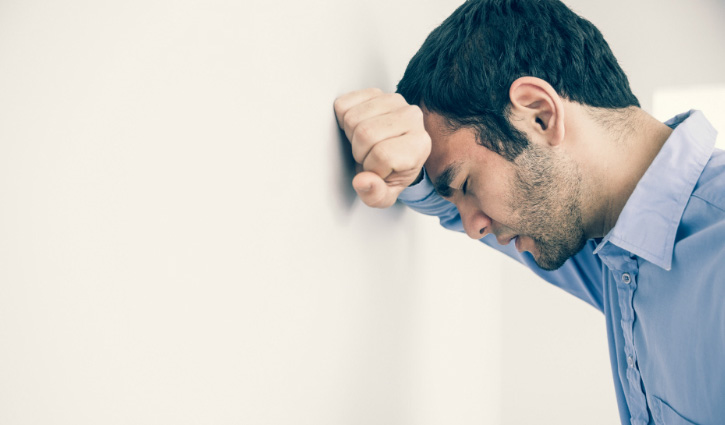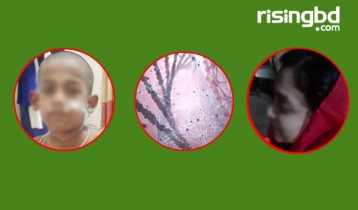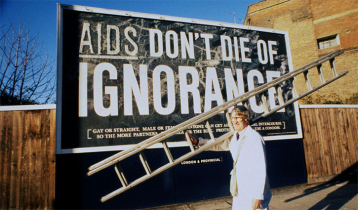10 symptoms of panic attacks
5 || risingbd.com

Desk Report: Many people use the term "panic attack" loosely, declaring they've had a major panic attack when they're really just a little nervous or experiencing minor stress.
But a panic attack is much more acute—it's a sudden episode of sheer terror so intense that it can actually cause physical reactions. Learning to ID a panic attack and knowing how to cope will go a long way toward restoring calm.
There are ten symptoms of panic attack in this report and those are discussed below.
A deep fear strikes out of the blue
Panic attacks can come without warning, triggering a sudden feeling of overwhelming dread. It's more than feeling nervous, anxious, or stressed out about something. According to the American Psychological Association, the surge that comes over you is "intense" and "comes without any obvious reason," though often it's linked to feeling physically trapped or agoraphobic. If your panic attacks are recurring, you can go on to develop panic disorder, which affects some six million American adults, more women than men, according to WebMD. (Don't miss these 13 cartoons that people will anxiety will definitely understand.)
You feel like you're losing your mind
Because of the intensity and sudden onset of the feelings, in addition to the physical symptoms that may arise at the same time, it's not unusual to develop a "fear of going crazy" during a panic attack, Todd Farchione, PhD, of the Boston University Center for Anxiety & Related Disorders, told U.S. News & World Report. One patient elaborated for U.S. News & World Report, saying that the mind/body disconnect about what's happening can be confusing. "I didn't know what was going on," the patient said. "Your body doesn't know what to do... Half your brain is telling you to run, and the other half is telling you to stay. You're in kind of a deadlock." (But not to worry, you're not actually going crazy–and you need to stop feeling bad about your emotions.)
Your heart races
When you have a panic attack, your body responds as though it's under an actual physical threat, escalating to a state of severe discomfort within minutes. A massive surge of nervous signals activates the amygdala, the brain's evolutionary fight or flight center, causing symptoms that include a rapid, pounding heart rate that can make you feel like you're having a heart attack.
You fear for your life
The fear pulsing through you may lead you to feel as though you're dying or out of control. But what's really happening, as Farchione explains, is that your body is flooded with adrenaline, due to the perception of imminent danger. It's gearing up to do whatever's needed to protect itself, whether that means punching and kicking or running as fast as you can. If you can remember that this is simply your natural, physiological responses at work, it may lessen the impact of the fear. (Here's how tactical breathing can calm a panic attack.)
You may feel short of breath
Having "difficulty breathing" and "feeling as though you can't get enough air" are common when you're experiencing a panic attack, according to the American Psychological Association. It happens when heightened anxiety causes you to breathe too quickly and hyperventilate. Learning some mindful breathing techniques may help prevent anxious feelings from escalating into a full-scale panic attack. These magic phrases can instantly calm your anxiety.
You're like a deer in the headlights
You may find yourself overcome with a fear so strong that it practically renders you immobile. The American Psychological Association describes this as a "terror that is almost paralyzing." (Did you know stressing about three things at once is the best thing you can do for your anxiety?)
The room seems to be spinning
A common sign that you're experiencing a panic attack includes feeling weak, dizzy, and faint, likely because blood is rushing away from your brain toward your limbs, so you can fight or flee as needed. Don't be surprised if nausea enters the picture too; the American Psychological Association says that this sensation may accompany dizziness during a panic attack. These are other signs you may be about to faint.
You sweat
Sweating is a natural reaction to heightened anxiety. You may also start trembling or shaking while you're sweating. Here are other natural anxiety remedies to try.
You're hot and you're cold
During a panic attack, it's not uncommon to feel suddenly flushed with heat or have chills. While a panic attack lasts only about five to 10 minutes, you can feel some the effects for hours. (Here are some things that people living with anxiety can understand.)
You've undergone a lot of stress
Although there are variations on who gets panic attacks and why, one thing that's clear is that severe stress plays a role. (However, stress and anxiety are not the same thing.) "The cause is very often stress that's occurred over the past six to eight months," Reid Wilson, PhD, an associate clinical professor of psychiatry at the University of North Carolina School of Medicine, told U.S. News & World Report. "Often the stress might have to do with loss—a sense that there's a task or challenge in front of me that I perceive as large, and I perceive my skills as small." If you've faced a great deal of stress on a fairly ongoing basis, and you experience most of the symptoms we've mentioned, it's highly likely you're having panic attacks. These signs suggest you're more stressed than you realize.
Source: Reader's Digest
risingbd/Dhaka/Nov 26, 2017/AI
risingbd.com























